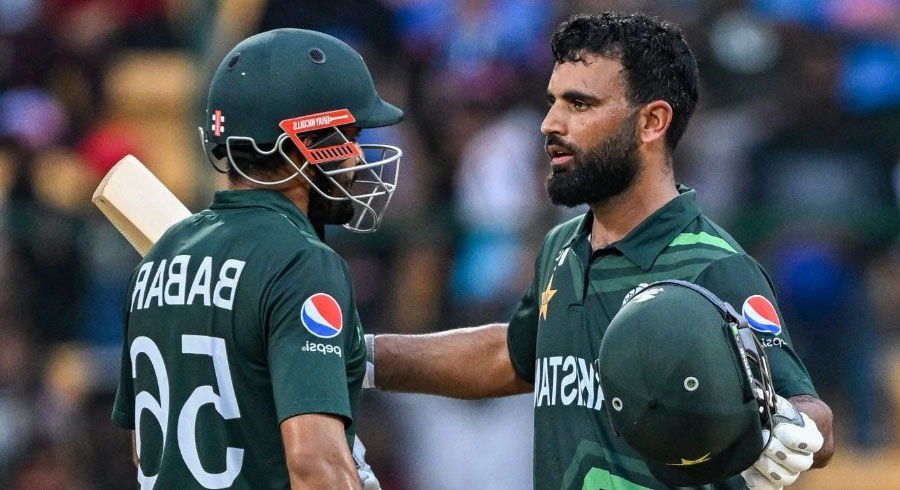
Fakhar Zaman, widely regarded as one of Pakistan’s best white-ball batsmen, is notably absent from the 2024-25 PCB central contract list. Known for his aggressive, match-winning style, Fakhar has been a valuable player for Pakistan. Especially in One-Day Internationals (ODIs) and T20s. Yet, recent conflicts with the Pakistan Cricket Board (PCB) have led to growing tensions. Between him and the board, stirring up speculation about his future in cricket. From contract exclusions and rejected No-Objection Certificates (NOCs) to fitness test disputes. Fakhar’s journey has taken an unexpected turn, leaving fans and experts questioning the PCB’s treatment of one of its most impactful players. In this article, we’ll delve into Fakhar Zaman’s career. The key events leading to his contract exclusion, and what this means for his future and Pakistan cricket.
Fakhar Zaman’s A White-Ball Match-Winner
Fakhar Zaman rose to prominence as a batsman known for his fearless, attacking play. He holds an impressive record for Pakistan in limited-overs cricket. Most notably his century in the 2017 ICC Champions Trophy final, which helped Pakistan claim victory over India. Fakhar’s ability to score quickly in ODIs and T20s. He has positioned him as a vital part of Pakistan’s white-ball strategy, making his absence from the current central contract a surprising turn of events.
Despite these accomplishments, Fakhar’s career has recently faced several obstacles. Repeated disputes with the PCB over fitness requirements. NOC requests for international leagues, and concerns around team selection have raised questions. Fakhar’s frustration became public, resulting in tensions that many believe contributed to his removal from the contract list. This section examines his recent career struggles and what led to his current standing with the PCB.
The Central Contract Exclusion: What Led to It?
The Pakistan Cricket Board’s decision to exclude Fakhar Zaman from the central contract for 2024-25 has sparked widespread debate. This decision follows months of tension between Fakhar and the PCB, stemming from a series of incidents that have reportedly strained their relationship.
Controversial NOC Rejections for Overseas Leagues
Fakhar Zaman’s exclusion can be traced back to ongoing issues with the PCB over NOCs required to participate in international leagues. Fakhar, seeking opportunities in the Big Bash League (BBL), applied for an NOC several months in advance. Aiming to expand his playing experience and exposure. However, the PCB denied his request, limiting his ability to play in Australia’s prominent league and potentially impacting his professional growth and income.
Fakhar’s case isn’t unique in Pakistani cricket, where players often face challenges in securing NOCs. The PCB’s policies are designed to prioritize national commitments, yet they can sometimes hinder players’ career progression. By denying Fakhar the opportunity to play in the BBL, the PCB potentially affected his development as a cricketer, adding to his frustrations.
Delayed NOC for CPL Participation
Adding to Fakhar’s grievances was a delay in obtaining an NOC for the Caribbean Premier League (CPL). Although the PCB eventually granted him permission to participate, it was a last-minute decision. Disrupting his plans and adding to the mounting tension between him and the board. Fakhar traveled to Guyana, ready to compete, but was soon called back by the PCB for a fitness test. Such last-minute changes not only affect players’ mental and physical preparedness but also hint at communication gaps within the PCB.
Fakhar Zaman’s Repeated Fitness Test Requirements
Another significant factor leading to Fakhar’s exclusion has been the PCB’s strict fitness requirements. In recent years, the board has introduced rigorous fitness assessments as a condition for player selection. Fakhar was asked to undergo multiple fitness tests before and after the Champions Cup, despite already proving his fitness earlier in the season. This demand for repeated testing became a point of contention, with Fakhar openly expressing his dissatisfaction. Fakhar felt that the process was excessive and targeted, ultimately leading to his criticism of the PCB’s approach. This outspoken stance did not sit well with the board, culminating in his exclusion from the central contract.
Mohammad Amir’s Support for Fakhar Zaman
Mohammad Amir, a former Pakistani fast bowler, voiced his support for Fakhar Zaman amidst the controversy. Amir’s statement captured the sentiments of many cricket fans who felt that the PCB’s decision was unjust. In his words, “I am surprised that Fakhar Zaman is not in the team. He is the only impact player.” This public endorsement from a respected player like Amir further ignited discussions around Fakhar’s exclusion, Also raising questions about the PCB’s treatment of one of Pakistan’s best white-ball players.
PCB’s handling of Senior Players: A Pattern of Controversy
Fakhar Zaman’s case isn’t an isolated incident; the PCB has faced scrutiny over its handling of senior players in the past. The board has often been criticized for its management style, especially regarding contract renewals, fitness policies, and communication with players. Fakhar’s experience mirrors the struggles of other Pakistani cricketers. Who have faced similar issues, sparking concerns over the PCB’s approach to managing top-tier talent.
A History of Contentious Decisions
The PCB’s policies and approach have often placed players in challenging positions, with fitness assessments becoming a significant point of friction. The board’s stance on fitness is well-known, with a rigorous regimen, That requires players to meet strict standards to maintain their contract status. While these standards are intended to ensure peak performance, some argue that they’re applied inconsistently, creating frustration among players who feel targeted. Fakhar Zaman’s recent experiences with repeated fitness tests highlight this ongoing issue. With many questioning whether such stringent requirements are necessary.
Communication and Contract Clarity
Poor communication has been a recurring issue in PCB-player relations. Fakhar’s experience with delayed NOC decisions and last-minute fitness test demands has exposed gaps in how the PCB communicates with its players. This lack of clarity often results in confusion, affecting players’ careers and morale. Fakhar’s public expression of frustration reflects broader concerns about how the PCB manages its players. Prticularly in providing clear guidelines and respecting players’ commitments.
Fakhar Zaman’s Future: Is Retirement on the Horizon?
Fakhar Zaman’s exclusion from the central contract list and the continued strain with the PCB has fueled speculation about his future. There have been rumors of Fakhar considering retirement, although no official statements have been made. His potential withdrawal from Pakistan cricket would be a significant loss, given his impact as an opener in limited-overs formats. If Fakhar retires or reduces his national appearances. It could signal a shift for other players facing similar situations, prompting the PCB to reconsider its policies.
The Broader Impact on Pakistan Cricket
Fakhar’s absence from the central contract and his potential departure from the national team would have repercussions for Pakistan cricket. His aggressive play style provided Pakistan with a competitive edge, particularly in high-stakes matches. Losing an experienced player like Fakhar would leave a gap in the batting lineup, particularly in the opening spot where he has thrived. His departure would require the PCB to seek alternatives. Potentially impacting Pakistan’s performance in limited-overs formats and their overall competitiveness in international tournaments.
Lessons for the PCB: Managing Talent and Maintaining Morale
The ongoing situation with Fakhar Zaman sheds light on broader issues within the PCB’s management approach. For Pakistan to retain its top players and maintain a strong team, the board needs to prioritize transparency, fairness, and player morale. This includes:
- Clear Communication: Ensuring players receive timely and clear communication about NOC statuses, fitness test requirements, and contract terms.
- Consistency in Fitness Standards: Establishing consistent standards for fitness tests and reducing redundant assessments.
- Support for Senior Players: Recognizing the value of experience and allowing senior players to maintain their careers without unnecessary obstacles.
The PCB’s approach to handling this controversy could influence how future players perceive their careers within Pakistan cricket. A balanced approach that values both player welfare and performance would benefit the board, the players, and the team as a whole.
Conclusions on Fakhar Zaman’s Player Profile
Fakhar Zaman’s exclusion from the PCB’s central contract for the 2024-25 season underscores ongoing issues within Pakistan cricket management. His contributions to Pakistan’s white-ball success are undeniable, and his absence highlights the importance of fair and consistent player management. Mohammad Amir’s defense of Fakhar further emphasizes the value of experience and the need to support players who have proven their worth on the field.
As Fakhar Zaman’s future hangs in the balance, the PCB faces a critical juncture in managing talent, morale, and performance standards. Ensuring transparency and fairness in contract decisions will be essential to retaining top-tier players and maintaining a competitive team. The handling of Fakhar’s case will be a defining moment for Pakistan cricket, shaping the board’s reputation and influencing how future players approach their careers within the national team.

